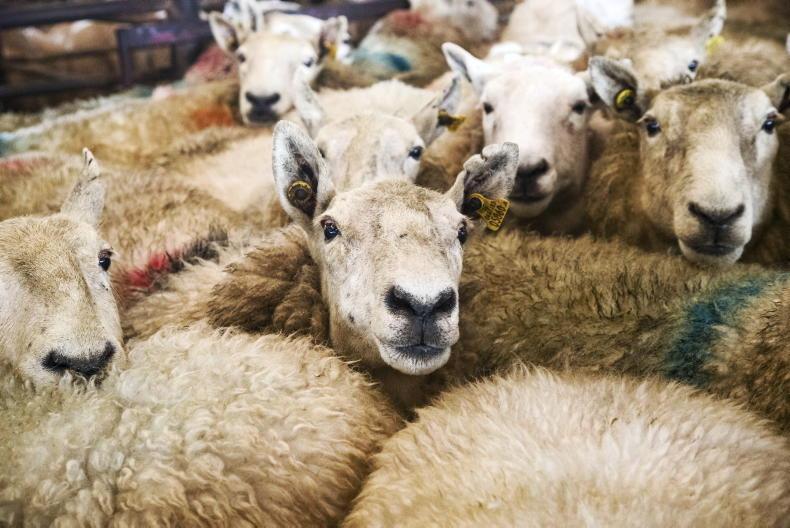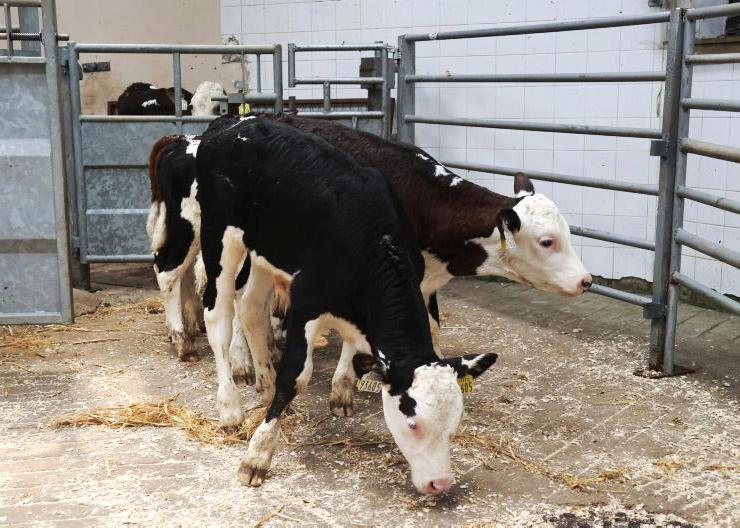Farmers in the UK have ramped up their efforts to measure the methane emissions from sheep, as they bid to find which breeds are the most carbon efficient.
In a project led by Scotland’s Rural College (SRUC), high-tech portable chambers for measuring sheep methane emissions are now being used in the UK for the first time.
The New Zealand-designed portable accumulation chambers (PACs) can predict methane emissions in individual sheep from a variety of systems, including at pasture, as well as in multiple locations.
The chambers are trailer-mounted and can be used to test the difference in emissions from individual sheep, comparing different breeds and management systems.
Analysis
The SRUC scientists are collecting air samples from the PACs to analyse methane concentration, showing which genetics, feed types and systems generate the highest emission levels.

Different breeds of sheep emit different levels of methane, scientists at Scotland’s Rural College (SRUC) believe. \ Claire Nash.
SRUC project leader Dr Nicola Lambe said: “There is an urgent need to mitigate greenhouse gas emissions from sheep. Recent figures show there are more than 1.2 billion sheep in the world, producing around 7m tonnes of methane into the atmosphere.
“Despite the fact resource efficiency and greenhouse gas emissions are global priorities, there are few examples around the world of research to implement breeding strategies to directly tackle these issues in sheep.”
Difficulty
Dr Lambe suggested that the difficulty in recording individual sheep feed consumption and greenhouse gas emissions will be addressed by the new trailer-mounted measurement chambers.
“The portable accumulation chambers will play an important role in starting to address this issue,” she explained.

2,500 sheep are to be studied at a farm in Hertfordshire. \ Odhran Ducie
Rob Hodgkins, who runs 2,500 sheep on his farm in Hertfordshire, has become the first farmer in the UK to use the PACs, following a grant from Innovate UK.
“Not only does this make sense from an environmental point of view, but it also makes sense economically.
"It will only be a matter of time before consumers will be able to look at labels on packets of meat that shows what they’re buying has come from, for example, a carbon-zero sheep,” he said.
Read more
Limousin cattle found to have lowest daily emissions – study
Farmers in the UK have ramped up their efforts to measure the methane emissions from sheep, as they bid to find which breeds are the most carbon efficient.
In a project led by Scotland’s Rural College (SRUC), high-tech portable chambers for measuring sheep methane emissions are now being used in the UK for the first time.
The New Zealand-designed portable accumulation chambers (PACs) can predict methane emissions in individual sheep from a variety of systems, including at pasture, as well as in multiple locations.
The chambers are trailer-mounted and can be used to test the difference in emissions from individual sheep, comparing different breeds and management systems.
Analysis
The SRUC scientists are collecting air samples from the PACs to analyse methane concentration, showing which genetics, feed types and systems generate the highest emission levels.

Different breeds of sheep emit different levels of methane, scientists at Scotland’s Rural College (SRUC) believe. \ Claire Nash.
SRUC project leader Dr Nicola Lambe said: “There is an urgent need to mitigate greenhouse gas emissions from sheep. Recent figures show there are more than 1.2 billion sheep in the world, producing around 7m tonnes of methane into the atmosphere.
“Despite the fact resource efficiency and greenhouse gas emissions are global priorities, there are few examples around the world of research to implement breeding strategies to directly tackle these issues in sheep.”
Difficulty
Dr Lambe suggested that the difficulty in recording individual sheep feed consumption and greenhouse gas emissions will be addressed by the new trailer-mounted measurement chambers.
“The portable accumulation chambers will play an important role in starting to address this issue,” she explained.

2,500 sheep are to be studied at a farm in Hertfordshire. \ Odhran Ducie
Rob Hodgkins, who runs 2,500 sheep on his farm in Hertfordshire, has become the first farmer in the UK to use the PACs, following a grant from Innovate UK.
“Not only does this make sense from an environmental point of view, but it also makes sense economically.
"It will only be a matter of time before consumers will be able to look at labels on packets of meat that shows what they’re buying has come from, for example, a carbon-zero sheep,” he said.
Read more
Limousin cattle found to have lowest daily emissions – study











SHARING OPTIONS